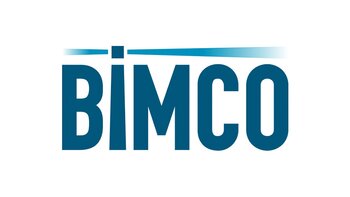May, 2022 - BIMCO releases SHIPSALE 22 standard form
Following a drafting and consultation process of more than two years, BIMCO has launched its first ship sale and purchase agreement standard form known as SHIPSALE 22. BIMCO state that the purpose of the form is to provide the market with “a modern and comprehensive alternative” to the existing forms available with the aim of making the ship sale and purchase process more efficient. SHIPSALE 22 is broadly based on the Norwegian SALEFORM 2012 (“NSF 2012”) but we highlight some of the key differences below.
Format
BIMCO has adopted the two part, box format seen in most of its standard contract forms. The key commercial terms such as buyer/seller details, purchase price and deposit are inserted in the boxes in Part I. The key terms are then cross-referenced in the substantive clauses in Part II of the agreement. In addition, there are two annexes: Annex A sets out the delivery documents to be provided by each party, including the Protocol of Delivery and Acceptance and Annex B is where the parties can insert “Excluded Items” which are often not known until after the MOA has been signed.
Title
Unlike NSF 2012 and other sale forms, Clause 2(d) of SHIPSALE 22 expressly states that title and risk in the ship remain with the seller until delivery takes place as stipulated in the MOA.
Subjects clause
SHIPSALE 22 includes a new, stand-alone ‘subjects’ clause at clause 3. The clause allows the parties to insert specific subjects/conditions in Box 25 and the latest date by which the listed subjects must be fulfilled. The agreement between the parties does not become effective until all subjects have been ‘lifted’/fulfilled (clause 3(a)) and, if the subjects have not been lifted by the specified date, the MOA will be null and void (clause 3(c)). Parties will need to ensure that they give careful consideration to the date they insert in terms of fulfilling any listed subject and that it is clear which party is responsible for fulfilling the condition.
Deposit
While the NSF 2012 provides for use of a third party deposit holder, clause 5 of SHIPSALE 22 goes further with the inclusion of a separate ‘Deposit Holding Agreement’ between the parties and the deposit holder. The separate Deposit Holding Agreement sets out the terms on which the deposit will be received, held and released by the deposit holder save for specific terms regarding fees and interest set out in clause 5(c).
In addition to signature of the MOA and notification from the deposit holder that the deposit account is ready to receive the deposit as provided for in the NSF 2012, clause 5(d) of SHIPSALE 22 also requires (i) the deposit holding agreement to be signed by the parties and the deposit holder (clause 5(d)(ii)) and (ii) all subjects listed in Box 25 in accordance with the subjects clause 3 have been lifted (clause 5 (d)(iv)) before the deposit can be transferred into the deposit account.
Clause 5(e) of SHIPSALE 22 also allows the buyer an additional two banking days to lodge the deposit with the deposit holder in the event of a ‘Disruptive Banking Event’ as defined in the clause which is not provided for in the NSF 2012.
Inspections
In terms of inspections, the NSF 2012 provides that either (i) the buyer has inspected and accepted the ship and classification society records or (ii) the buyer will have the right to inspect the ship and classification records and declare whether they are accepted or not. Clause 6(c) of SHIPSALE 22 introduces a new, third option for the buyer to accept the ship and its classification society records without undertaking an inspection.
Sanctions/anti-corruption
SHIPSALE 22 includes specific clauses dealing with sanctions (clause 21) and anti-corruption (clause 22) which are based upon standard BIMCO wording.
Remote closing and electronic signatures
Reflecting the rise of remote working and ease of electronic communications, clause 16(a) of SHIPSALE 22 allows for closing to take place “remotely by electronic means” by the parties stipulating the chose electronic method in Box 19. In addition, clause 27 incorporates the BIMCO Electronic Signature Clause 2021 which allows the parties to us electronic signatures when signing the MOA and any connected documents. Clause 27(c) does recognise, however, that certain ship registries may require hard copy, original signatures and provides an undertaking that each party will provide a handwritten signature upon request.
Members can find the sample copy of SHIPSALE 22 on the BIMCO website.
As always, if Members have any questions in relation to the above issues they are invited to contact the Club for further information.
